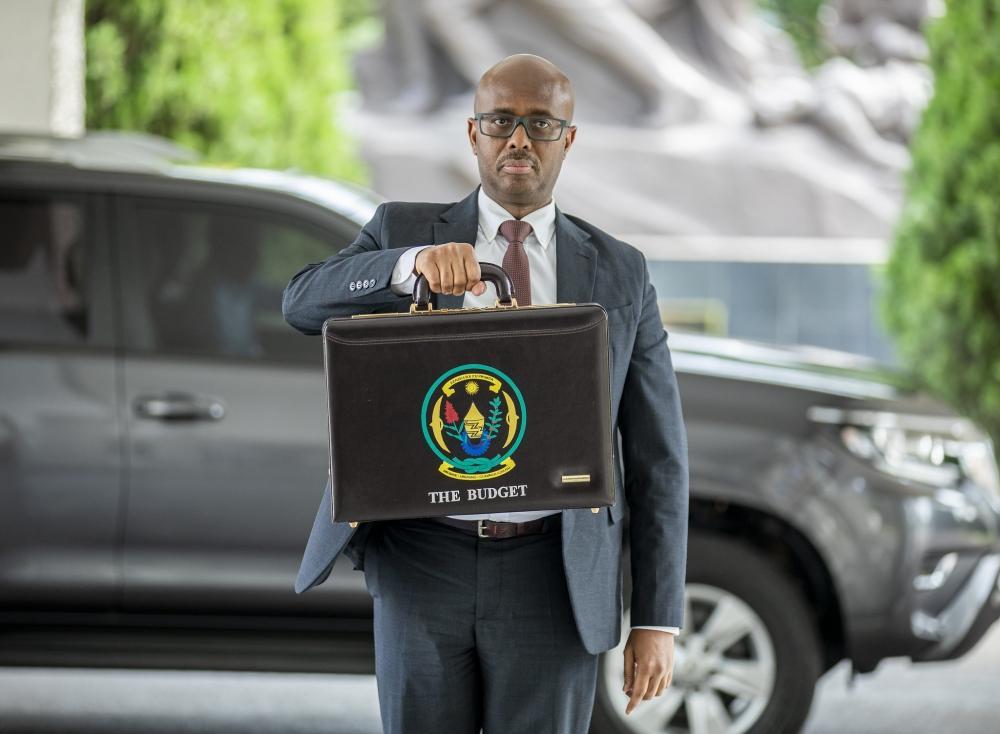Africa-Press – Rwanda. Finance minister Yusuf Murangwa on Thursday, June 12, presented the national budget for the 2025/2026 fiscal year, announcing the government’s plan to spend over Rwf7 trillion starting July 1.
This marks a 21 percent increase from the 2024/2025 budget, reflecting the government’s shift in priorities and ambition.
At the heart of the expanded budget is a bold strategy to accelerate economic transformation and advance good governance, alongside other key national development goals.
Here is what different Rwandans think about the new budget:
Deexon Muhizi, the founder of Igitree, a genealogy platform.
This budget is a game-changer for the startup ecosystem. As a young nation with an equally young innovation scene, we’ve long depended on international grants and loans. But with the government now investing in domestically funded projects, it will be easier for startups to access capital and grow.
As someone working in genomics, I prefer local support due to the sensitivity of the data I collect. Relying on foreign funding often comes with strings attached, which can be limiting.
Our innovation hubs also need support. Most rely on external funding tied to strict KPIs that many startups struggle to meet. Locally sourced funding would ease that burden.
To aspiring entrepreneurs, Rwanda is a virgin territory full of untapped potential. Your ideas matter. There’s support out there, and now with more domestic backing, the environment is even more promising.
On the local fundraising, I think it all comes down to taxpayer commitment. If we don’t pay taxes, the government won’t have the resources to support us, and we’ll be forced to rely again on external funding, which often comes with conditions we may not be comfortable with.
Fabiola Tebuka, the Assistant Tax Manager at KPMG Rwanda.
When we talk about raising 60% of the national budget domestically, all I understand is taxes. While taxes can feel burdensome, I prefer to see them as a contribution toward the development we all ask for.
The recent tax policy changes, including new levies on tourism, may have some impact, but these are part of a fair strategy.
The government has supported certain sectors like tourism, for years. Now, it’s asking them to contribute. At the same time, we’re seeing tax exemptions too, especially where the government wants to promote investment, like electric vehicles. That’s a strong signal of national priorities.
I believe all key areas – economic, social, and governance – have been addressed. The allocation may differ, but the priorities are clear. Let’s take taxes not just as a burden, but as a way of participating in building the Rwanda we all want.
Damien Mouzoun, a family counsellor and chief executive of Ayina Think Tank, a research-based counseling center in Kigali.
A significant portion of the budget is dedicated to economic transformation, with infrastructure taking centre stage.
Major projects like Bugesera International Airport and expansive road networks are receiving the lion’s share. These investments are critical for accelerating economic growth and improving connectivity.
Equally important are the allocations towards health insurance and education. The focus on human capital development is strategic for empowering Rwandan youth with skills to compete regionally and globally. This is essential for long-term prosperity.
That said, while there have been commendable efforts to boost funding for climate-smart agriculture, irrigation, and fertilizer access, agriculture on which nearly 80% of Rwandans rely could have received a more substantial share. This remains an area where future budgets should go further.
Encouragingly, the budget aligns with NST2 targets, particularly the ambitious but attainable goal of creating over one million jobs. Job creation is embedded across priority sectors; whether in infrastructure, agriculture, manufacturing, or ICT. From construction sites to farmlands to digital platforms, each sector represents an engine of employment.
Looking at the bigger picture, this budget unlocks diverse investment opportunities in energy, agriculture, health, and technology. Rwanda is steadily positioning itself as a hub for innovation and technology transfer, and with this budget in place, the time is ripe for both local and international investors to engage.
Angello Musinguzi, the Tax and Regulatory Partner at Garnet Partners Limited, a firm providing tax, audit, and advisory services.
This budget is the biggest budget the country has ever had. And, what’s more impressive is that over 60% of it will be financed domestically mainly through taxes like VAT, corporate income tax, PAYE, and customs duties.
A large portion of the budget is earmarked for economic transformation, especially infrastructure, with key projects such as the Bugesera International Airport and road networks receiving the lion’s share.
This infrastructure investment is vital for accelerating economic growth; crucial sectors like health insurance and education have also received major allocations. In particular, investment in human capital development is seen as key to enabling Rwanda’s youth to compete globally and regionally for jobs.
Despite some improvements in funding for climate-smart agriculture, irrigation, and fertilizer access, agriculture deserved a larger share. About 80% of the Rwandan population depends on agriculture. While the budget has addressed it, I hope the next budget allocates even more.
The budget also aligns with the targets set under NST2, particularly the goal of creating over one million jobs. As job creation is embedded across sectors from infrastructure and agriculture to manufacturing and ICT. Whether it’s construction, farming, or value addition, these are all engines of employment.
I believe the target is realistic and achievable, pointing to existing results and ongoing projects. The investment opportunities the budget creates especially in energy, agriculture, ICT, and health.
Rwanda is positioning itself as a hub for technology transfer and innovation. With this budget in place, it’s the perfect time for investors to tap into these opportunities.
William Mudahemuka, a researcher and consultant.
This new budget for 2025/2026 shows how far Rwanda has come. If you compare it with past budgets especially after the 1994 Genocide against the Tutsi, it’s clear we’ve made strong progress. The numbers presented today prove that Rwanda is moving from recovery to resilience.
Our economy is growing, especially through services, agriculture, and manufacturing. This shows that Made in Rwanda is playing its part. With the country’s vision to export more, import less will build a stronger local economy. And the value of our currency can gain strength again.
Rwanda is able to fund 60% of it’s budget but it takes all of us paying taxes, creating jobs, and staying aligned with national goals like Vision 2050. Accountability starts with each citizen not just the government.
We must support this budget. It’s not just about numbers. It’s about building a future we all share.
Daphne Tumukunde, a Senior Tax Advisor Associate at KPMG Rwanda.
What’s impressive about this year’s national budget is that the government is aiming for 60% of it to come from domestic revenue. That means fewer loans, less dependency, and more financial independence. It’s rare to see such ambition in Africa. Some people might be worried, but I say give it time great things are on the way for Rwanda.
People often complain about taxes, but I don’t think taxes are a burden. Paying tax is a responsibility, something we all have to do. Whether you’re running a big business or a small shop, your taxes help someone else like a farmer in Musanze who can finally access a good road to sell their produce. That’s the power of taxesnthey build our country.
Let’s stop thinking of taxes as money we lose. It’s money we’re investing in better infrastructure, better services, a better future. It’s an investment in ourselves, in our communities, in our children.
This budget isn’t just for the government; it’s for all of us. If your district is promised new roads or electricity, follow up. Ask your local leaders. If they said power lines are coming, ask where they are. Let’s hold each other accountable. If we all do our part, we’ll not only meet the goals of this budget we’ll surpass them.
For More News And Analysis About Rwanda Follow Africa-Press






